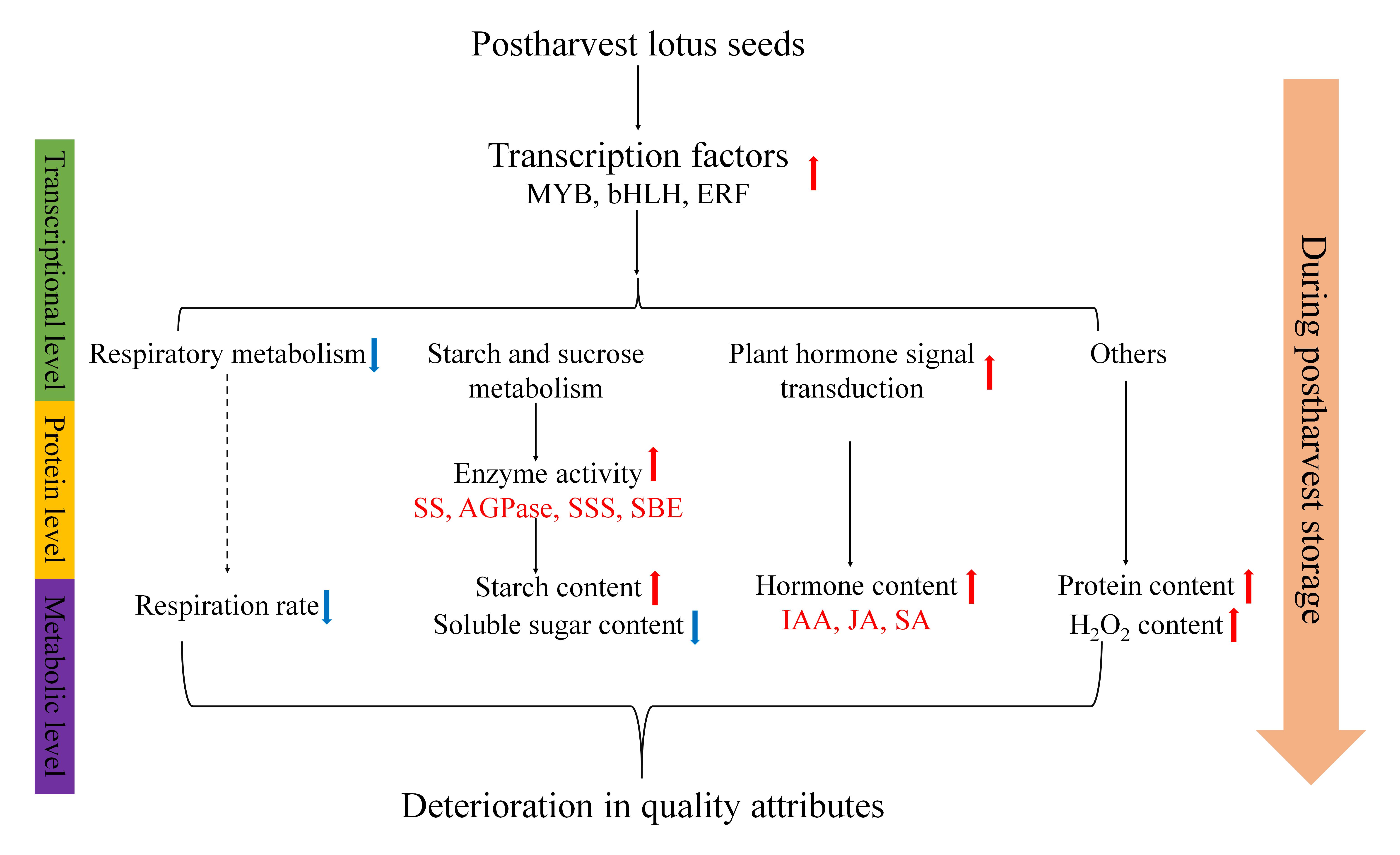Name:YANG Mei
Tell:
Email:yangmei815815@wbgcas.cn
Organization:Wuhan Botanical Garden
Study Unveils the Rapid Deterioration of Postharvest Lotus Seeds
2021-08-12
Fresh lotus seeds are eaten directly without seed coat as a snack and are increasingly popular among consumers due to their sweet taste and rich nutrition. However, its popularization is still limited by the rapid deterioration and short shelf life, caused by the relatively high cellular respiration and physiological metabolism of postharvest seeds.
Recently, the research team at Wuhan Botanical Garden revealed the physiological changes and the molecular mechanisms of lotus seeds during postharvest storage by physiological indexes measurement and transcriptome analysis.
This study showed that fresh lotus seeds underwent rapid physiological changes, including decreased soluble sugar content and increased starch and protein content during postharvest storage, leading to the increased hardness and reduced sweetness of lotus seeds.
Transcriptome analysis revealed a complex set of changes in gene expression that occurred during postharvest storage, and multiple biological processes that were involved in this process. More differentially expressed genes (DEGs) involved in energy metabolism pathway were down-regulated.
Although the expression patterns of starch biosynthesis related genes were complex, the activities of key enzymes such as ADP-glucose pyrophosphorylase (AGPase) and soluble starch synthase (SSS) were increased, which provided the molecular basis for rapid biosynthesis of starch.
Furthermore, multiple and complex phytohormone signals were involved in the regulation and development of lotus seeds during postharvest period. The activated plant hormone signaling pathways accompanied by increased hormone auxin (IAA), jasmonoyl-isoleucine (JA-Ile) and salicylic acid (SA) contents were identified at the transcriptional level.
Overall, these results will not only be useful for understanding the molecular mechanism of changes in fresh lotus seeds during postharvest storage, but also provide important references for innovations in postharvest preservation technology.
This research was funded by the Key Research Program of Frontier Sciences CAS, the Youth Innovation Promotion Association CAS, the National Natural Science Foundation of China, and the Hubei Provincial Natural Science Foundation of China.
The results have been published in Postharvest Biology and Technology entitled “Transcriptome analysis provides strategies for postharvest lotus seeds preservation”.

Model of molecular basis underlying the changes in lotus seeds during postharvest storage (Image by SUN Heng)